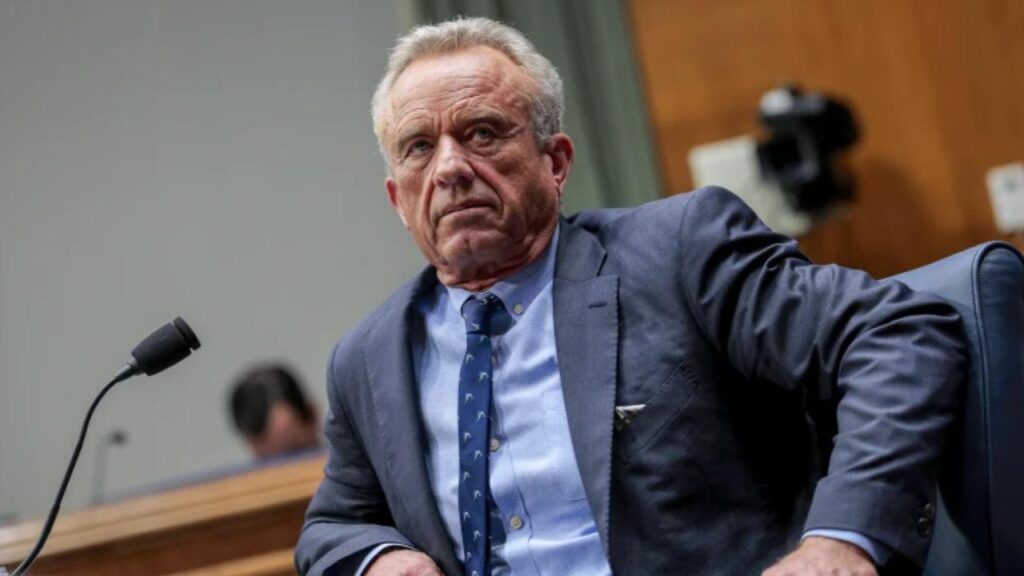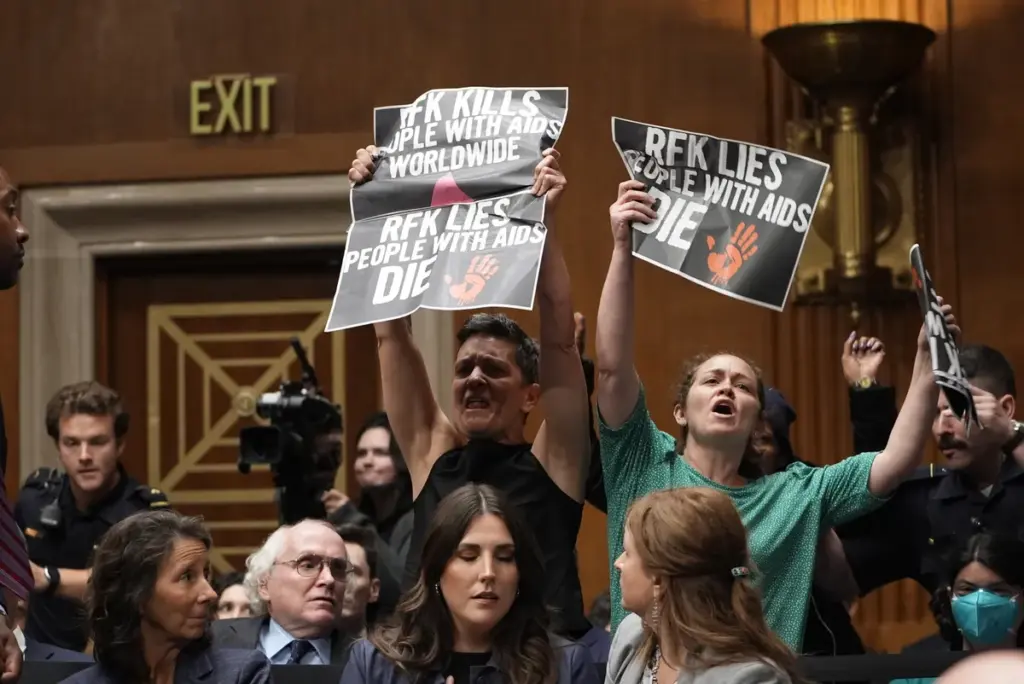RFK Jr. found himself in the congressional hot seat this week as lawmakers from both parties demanded answers on his controversial vaccine overhaul and proposed deep cuts to federal health programs. The hearing before the House Energy and Commerce Health Subcommittee marked one of the most contentious moments in his short tenure as Secretary of Health and Human Services — and offered a glimpse into how his policies could reshape American public health for years to come.

RFK Jr. Faces Fiery Showdown in Congress
| Takeaway | Stat |
|---|---|
| Vaccine leadership overhaul | All 17 CDC ACIP members replaced |
| NIH, CDC budget slashes | $21.6 billion in proposed cuts |
| Public health fallout | “Americans are going to die” — Dr. Fiona Havers |
Robert F. Kennedy Jr.’s radical reshaping of U.S. vaccine policy and sweeping health budget cuts have ignited a political and scientific firestorm. With vaccine confidence, disease preparedness, and billions in research funding at stake, Americans are watching closely to see whether Kennedy’s vision is bold reform — or reckless dismantling.
A Shocking Shakeup of Vaccine Policy
Kennedy’s first major move was firing all 17 members of the CDC’s Advisory Committee on Immunization Practices (ACIP) earlier this month. Within days, new members were installed — many reportedly sympathetic to Kennedy’s longtime vaccine-skeptic views.
Critics say the decision “critically weakened” the country’s vaccine policy infrastructure. Former panelists warned that it could delay routine immunization schedules and erode public confidence in vaccines.
Now, the restructured committee is preparing to vote on whether to eliminate thimerosal — a mercury-based preservative — from flu vaccines. Though long declared safe by numerous studies and the FDA, thimerosal has been a lightning rod for Kennedy’s criticism for nearly two decades.
“I’ve spent 15 years in immunology,” one former ACIP member told me privately. “This isn’t how you do vaccine policy — not by purging scientists like it’s a boardroom coup.”
Billions in Health Cuts, Thousands of Jobs Lost
RFK Jr. also defended President Trump’s proposed fiscal year 2026 budget, which slashes $18 billion from the NIH and $3.6 billion from the CDC. The plan includes cutting 10,000 jobs across HHS — moves Kennedy argues will “eliminate bureaucratic bloat” and redirect funds to patient-focused initiatives.
Of those jobs, roughly 942 have since been rehired, including 722 at CDC and 220 at NIH. Critics, however, say the cuts could delay cancer research, hobble pandemic preparedness, and stall biomedical innovation.
Rep. Kim Schrier (D-WA), a pediatrician by training, accused Kennedy of “gambling with lives,” adding, “We have a moral obligation not to undermine the institutions that keep Americans healthy.”
Explosive Hearing Highlights
Tempers flared during the subcommittee hearing, with members trading barbs and challenging Kennedy on his qualifications and motivations. “You lied to me and to the American people,” Schrier charged. “People will die from preventable diseases because of what you’ve done.”
Senator Bill Cassidy (R-LA), a physician and early supporter of Kennedy’s confirmation, also expressed regret. “You said you wouldn’t politicize vaccines. You’ve done the opposite,” Cassidy said in a statement earlier this week. Kennedy fired back: “We’re not dismantling science. We’re removing conflicts of interest and restoring integrity. That’s what public health needs.”

Expert Resignations and Misinformation Concerns
The fallout hasn’t been limited to politics. Vaccine specialist Dr. Fiona Havers publicly resigned, warning that Kennedy’s restructuring of ACIP “jeopardizes lives.” In an emotional interview, she told The Daily Beast, “Americans are going to die because politics is replacing science.”
Others worry Kennedy’s moves will deepen vaccine hesitancy. Dr. Ashish Jha, former White House COVID coordinator, wrote in The Washington Post that “gutting the ACIP risks unraveling decades of immunization trust.”
Canceled Contracts, Legal Scrutiny
Several lawmakers also pressed Kennedy about the abrupt cancellation of federal contracts for bird flu vaccine development. With a recent uptick in avian flu cases, critics argue that canceling those deals leaves the country more vulnerable to outbreaks.
A bipartisan group is now pushing for subpoena hearings into those decisions, citing a lack of transparency and the potential violation of procurement rules.
What Happens Next?
With Congress delaying a vote on the FY 2026 health budget, Kennedy now faces pressure to back up his reforms with data and deliver a clearer scientific rationale. Meanwhile, the revamped ACIP is expected to issue new flu vaccine recommendations within weeks — a decision that may set the tone for future policy.
A senior congressional aide told me: “This isn’t just about budget lines or vaccine ingredients. It’s about whether Americans still trust their health leaders. Right now, that trust is hanging by a thread.”
FAQs
Why did RFK Jr. fire the CDC’s vaccine panel?
He argued that the existing members were biased and failed to consider alternative perspectives. Critics call the move politically motivated.
Is thimerosal in flu vaccines dangerous?
Scientific studies and the FDA have repeatedly found thimerosal safe at the doses used in vaccines, but Kennedy has long advocated for its removal.
Will the budget cuts affect cancer research?
Yes, the NIH’s $18 billion reduction could slow down or halt multiple federally funded cancer and rare disease studies.






